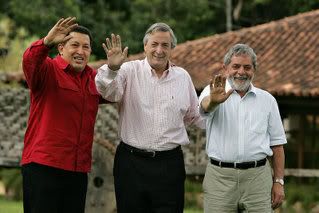Our second day in Córdoba was spent fully in the city. We had a handy tourist map, with the must-see spots, so we started as early as we could to try to visit all of them. Córdoba's most famous touristic show is the Jesuit Block, an old section of town where all the major historical buildings are preserved (although they're not all strictly built during the period of Jesuit dominance). So we headed there.
While walking we spotted a couple of majestic church spires some blocks away, so we diverted our course and ended up before the stunning beauty of the Church of the Sacred Heart of the Capuchin Fathers.
(I'm only showing a few pictures here because Córdoba-based photographers with more time and/or better equipment have had plenty of opportunities to collect photos of it that surpass my humble attempts. See La otra catedral de Córdoba: Iglesia de los Capuchinos at SkyscraperCity, which BTW has a large community of Argentine architecture, history and urbanism buffs.)
Being Holy Friday, there were no celebrations in progress (quick note for those without a Catholic education: God doesn't appreciate that you celebrate while His Son is nailed to a cross), so we could get inside and take pictures freely.
Before that, however, we got diverted from our diversion by the musical water fountain of the Paseo del Buen Pastor, which I'm told is a new venture: a preserved church, a former women's prison turned into a modern art gallery with semi-transparent façade, and a little shopping mall, all together in the same triangular half-block wedged between a street and a diagonal avenue, plus an animated "dancing waters" show [click on the link for video].
I'm rather convinced that this was an attempt on the part of Córdoba's municipality to copy the dancing waters of Parque Independencia in Rosario. Whatever the case, they got it OK.
It was noon, so good pictures were hard to get. We were hot and thirsty, so after visiting the Paseo and the Capuchins' church we walked around and found a shady spot to prepare mate and eat something. We were struck by the troublesomeness of this simple enterprise.
Córdoba City is big. It's an old city which has grown and turned into a metropolis over long centuries, growing into this size (while Rosario went from an insignificant village to a major city in less than 50 years). It's got wide multi-lane one-way avenues, two- and three- and four-way crossings with a complex traffic coordination, wide sidewalks. Parts of it are simply ill-suited for people on foot — rather designed for fast vehicles.
We missed the tree-lined narrow streets of Rosario and its many small green spaces. It took us forever to find a place where the sun didn't scorch our backs, and it was sitting on an old bench in a square with too little of anything in the way of vegetation, amid the roar of nearby traffic.
We wandered a bit more and found the Colegio Nacional de Monserrat, a school founded in 1687 that has had some notable characters among its pupils. Parts of the building are a museum (showcasing old documents and scientific instruments), but in fact the whole college is a historical building which you can visit outside of class hours. It was around two in the afternoon, and the streets were white hot; by contrast the interior of this ancient place was cool and peaceful. We took ages exploring all of its hidden corners.
We came back to the hostel and took a nap. At night we were supposed to meet Adolfo, our photographer contact, and some guys from the Córdoba-based Viernes Foto Club group. We agreed to meet at the Paseo del Buen Pastor, where a Via Crucis was being staged.
Sure enough, we met Adolfo and VFC's people, and after some pictures and a visit to a historical house cum museum, we went to a bar called Johnny-B-Good, where they usually gather for a beer or two. I'd been feeling a bit down and sleepy, and had had a headache since before getting to Córdoba, so I skipped the beer and restrained my hunger. By the time I was feeling a little more upbeat, we had to leave. It was getting very late and we had a trip to the Quebrada del Condorito scheduled for the next morning.








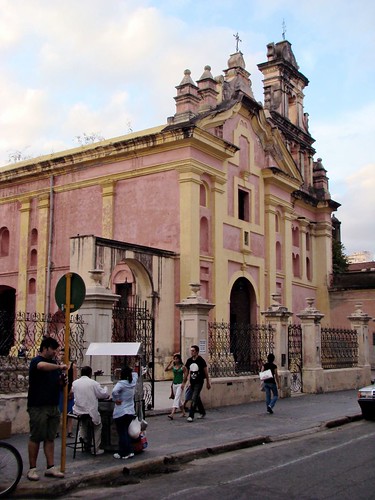
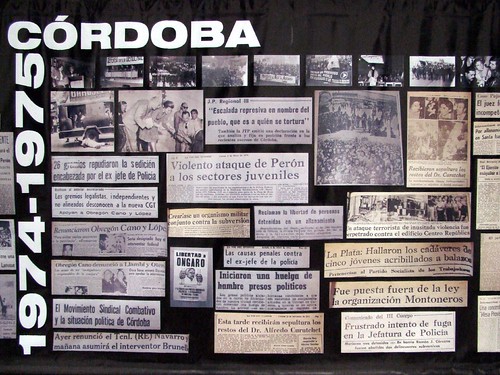
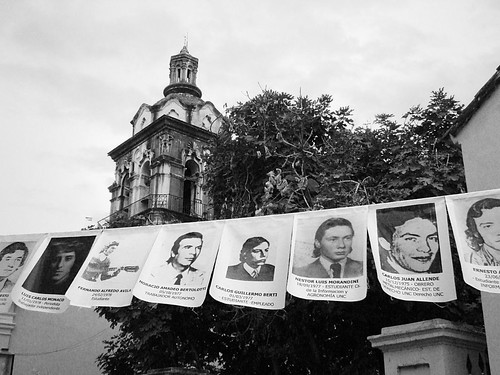



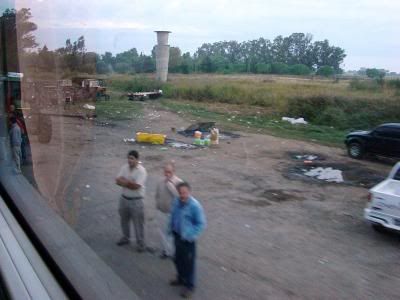

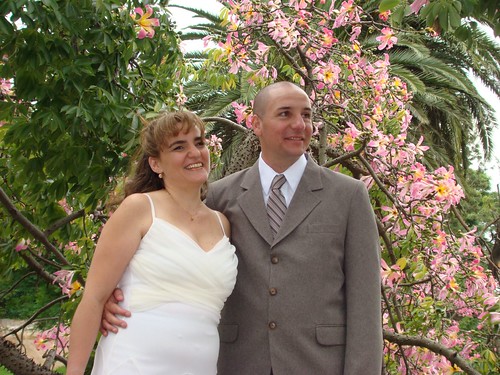
 One in two hundred. That's my (admittedly rough) estimate of how many people believe INDEC is reporting the true
One in two hundred. That's my (admittedly rough) estimate of how many people believe INDEC is reporting the true  Not only that, but with the soon-to-be-implemented seasonal substitution sampling method, inflation will be magically reduced further! The method works by ignoring large price variations — replacing the varying items with others of the same category, whatever that means. Take, for example, potatoes. Suppose they're suddenly up by 15%. That's a lot. That
Not only that, but with the soon-to-be-implemented seasonal substitution sampling method, inflation will be magically reduced further! The method works by ignoring large price variations — replacing the varying items with others of the same category, whatever that means. Take, for example, potatoes. Suppose they're suddenly up by 15%. That's a lot. That 